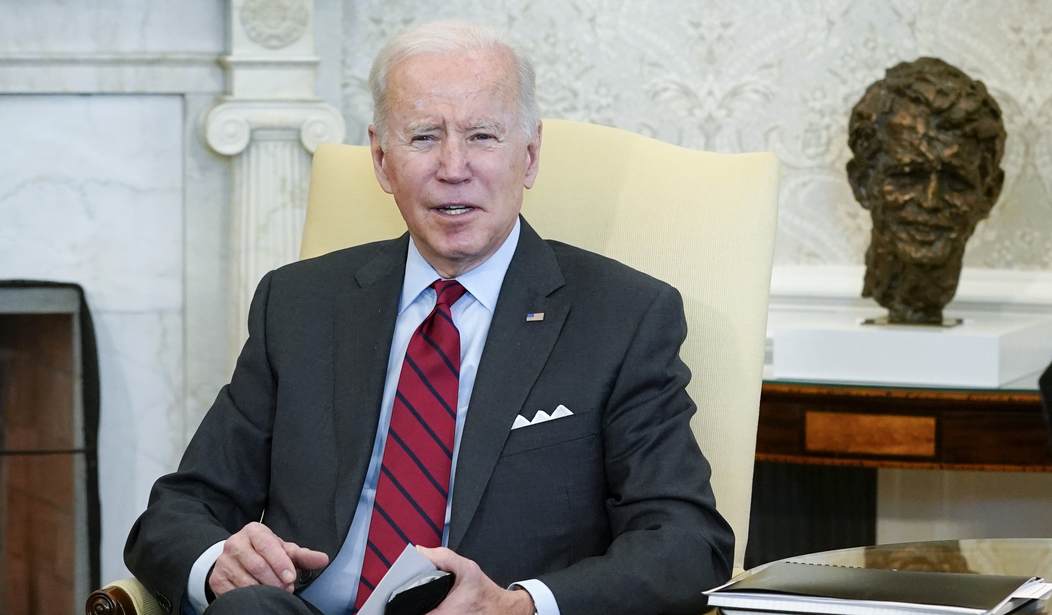If you think the Biden administration is disengaging from the Middle East and the Gulf region, think again. This week, the White House asked Congress to designate Qatar as a major non-NATO ally, which “opens up a full range of opportunities,” including exercises, operations and Qatar’s “acquisition of capabilities,” according to the Defense Department.
Qatar’s status as the world’s top gas exporter makes it a valuable ally. The harder thing to explain is why Biden picks favorites among the energy-rich Gulf monarchies, all of them firmly autocratic. The president has embraced Qatar while keeping Saudi Arabia and the United Arab Emirates (UAE) at arm’s distance.
In strategic terms, Biden’s summit with the Qatari emir, Tamim bin Hamad al-Thani, entailed a renewal of the U.S. commitment to the Carter doctrine, which extended American military protection to energy-rich Gulf states to guarantee that their exports keeps flowing, so the world economy keeps growing. As the emir noted in remarks at the Pentagon, the military base at Al-Udeid in Qatar is home to more than 10,000 U.S. military personnel.
The Russian threat to invade Ukraine provides an apt reminder of why Gulf energy is vital to Western prosperity and security. As part of a contingency plan to deal with Moscow’s potential aggression against Kiev, which would provoke a boycott of Russian gas, Qatar would raise its gas production to make up for the shortfall. This would not be a stretch for Doha, which pumps five times as much gas as Russia, the No. 6 exporter. Academic exercises may project a future built on clean energy, but oil and gas from the Gulf states will remain vital for the foreseeable future.
This still does not explain Biden’s preference for Doha over Riyadh and Abu Dhabi, however. Saudi Arabia is the world’s leading oil exporter. The United Arab Emirates (UAE) ranks fifth. Energy politics cannot explain the difference.
Recommended
Adding to the puzzle is Qatar’s state-backed, industrial-scale production of anti-American, anti-Israeli, and even crudely anti-Semitic propaganda. Doha funds a host of media outlets, the best known of which is the Al-Jazeera network. Some Americans imagine it is an independent and critical media outlet. They should spend more time watching it.
One of the network’s mainstays is Yusuf Qaradawi, the Muslim Brotherhood cleric who once called for “the abduction and killing of Americans in Iraq” and praised Hitler since he “managed to put [the Jews] in their place.”
More broadly, Qatari media play up an imagined portrait of the United States as the embodiment of White European colonialism, defined by its racism and aggressive imperialism.
While freedom of expression is an inalienable right in the United States, it does not exist in Qatar. Al-Jazeera and its sister outlets are state-owned enterprises, which broadcast the messages the Qatari government wants them to broadcast.
Qatar is also a proponent of Islamism, especially of the Muslim Brotherhood variety. The leaders of Hamas, an offshoot of the Brotherhood, have often taken refuge in Doha. One of Qatar’s state-backed charities sponsors Islamist organizations across the region. One grantee, who received $2.7 million in total, was a Hamas front the Obama administration designated as a terrorist group. Doha is also exceptionally close to Turkey’s Islamist strongman, Recep Tayyip Erdogan.
These relationships are why, whenever Washington wants to talk to terrorists, it calls Doha. It’s no accident that Qatar hosted negotiations with the Taliban.
Qatar also has a problematic friendship with the Islamist regime in Iran. While Doha tries to depict its envoys’ outreach as an effort to bridge the gap between Washington and Tehran, one might better interpret such visits as requests for permission for the emir to visit the White House. Arguably, Qatar’s deferral to the Iranian regime raises questions about designating Doha as a major non-NATO ally, a minor non-NATO ally, or an ally of any kind.
Meanwhile, Saudi and Emirati leaders have pursued a very different course. The UAE joined America’s war on terror on day one, had its F-16s fly sorties over Afghanistan, and later over Islamic State positions in Iraq. Both the UAE and Saudi Arabia played an instrumental role in penetrating and collecting human intelligence on terrorist groups. The two monarchies’ government-funded media often express pride in their alliance with America. In 2020, the UAE and Bahrain—the latter a Saudi protégé—became the first Arab governments to normalize relations with Israel.
The Biden administration presents its distaste for Riyadh and Abu Dhabi as a matter of concern for human rights. If so, embracing Qatar makes no sense. Regardless, picking Doha over other Gulf capitals sends a message that Qatar’s role is the model that America is seeking for its allies. At countries that fight Islamism, make peace with Israel, and stand up to the Iranian regime, the Biden administration wags its finger. For rulers who undermine America’s national interests at every corner, who court Tehran, and promote Islamism, Biden rolls out the red carpet.
A renewal of the Carter doctrine makes sense yet replacing good allies with fake ones is not the way to defend American interests.
Hussain Abdul-Hussain is a research fellow at the Foundation for Defense of Democracies (FDD). Follow him on Twitter @hahussain. FDD is a Washington, DC-based, nonpartisan research institute focusing on national security and foreign policy.

























Join the conversation as a VIP Member